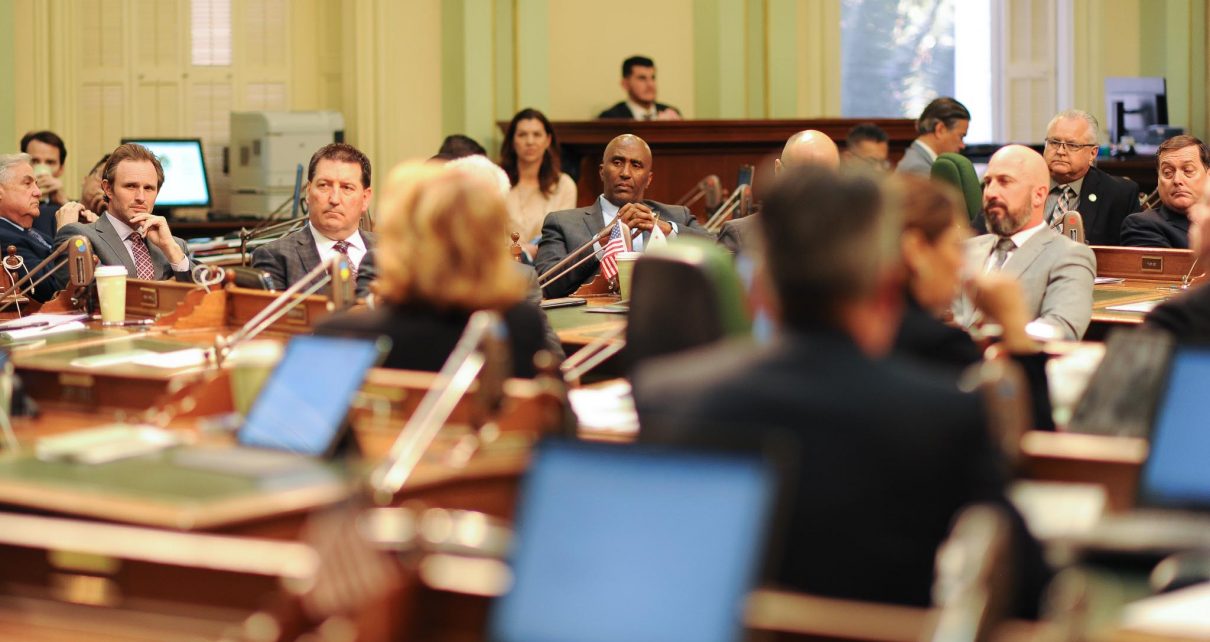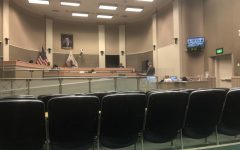
California State Assembly. (Photo: Kevin Sanders for California Globe)
Can the Public Be Excluded from Legislative Committee Hearings or Floor Sessions?
There is a ‘right to attend open and public proceedings’ of each house and their committees
By Chris Micheli, August 28, 2022 8:34 am
As the pandemic recedes, there continue to be limitations on the public’s ability to access some of the committee hearings and floor sessions of the California Legislature. Are these limits on public participation permissible?
Article IV, Section 7(c) sets forth the applicable law. This provision of the state Constitution provides:
(c) (1) Except as provided in paragraph (3), the proceedings of each house and the committees thereof shall be open and public. The right to attend open and public proceedings includes the right of any person to record by audio or video means any and all parts of the proceedings and to broadcast or otherwise transmit them; provided that the Legislature may adopt reasonable rules pursuant to paragraph (5) regulating the placement and use of the equipment for recording or broadcasting the proceedings for the sole purpose of minimizing disruption of the proceedings. Any aggrieved party shall have standing to challenge said rules in an action for declaratory and injunctive relief, and the Legislature shall have the burden of demonstrating that the rule is reasonable.
(2) Commencing on January 1 of the second calendar year following the adoption of this paragraph, the Legislature shall also cause audiovisual recordings to be made of all proceedings subject to paragraph (1) in their entirety, shall make such recordings public through the Internet within 24 hours after the proceedings have been recessed or adjourned for the day, and shall maintain an archive of said recordings, which shall be accessible to the public through the Internet and downloadable for a period of no less than 20 years as specified by statute.
(3) Notwithstanding paragraphs (1) and (2), closed sessions may be held solely for any of the following purposes:
(A) To consider the appointment, employment, evaluation of performance, or dismissal of a public officer or employee, to consider or hear complaints or charges brought against a Member of the Legislature or other public officer or employee, or to establish the classification or compensation of an employee of the Legislature.
(B) To consider matters affecting the safety and security of Members of the Legislature or its employees or the safety and security of any buildings and grounds used by the Legislature.
(C) To confer with, or receive advice from, its legal counsel regarding pending or reasonably anticipated, or whether to initiate, litigation when discussion in open session would not protect the interests of the house or committee regarding the litigation.
(4) A caucus of the Members of the Senate, the Members of the Assembly, or the Members of both houses, which is composed of the members of the same political party, may meet in closed session.
Let’s take a closer look at these provisions.
First, the proceedings of each house of the California Legislature, as well as their committees “shall be open and public.” California uses the term “shall” to mean something is mandatory (and “may” to mean something is discretionary). As a result, the Floor Sessions of the Assembly and Senate, as well as every type of committee (standing, select, joint, etc.), must be open and public. This also appears to require in-person meetings of the Floors and all of those committees.
Note that an individual may sue the Legislature over their adoption of “reasonable” rules. However, that provision relates only the Legislature adopting rules “regulating the placement and use of the equipment for recording or broadcasting the proceedings of the sole purpose of minimizing disruption of the proceedings.”
Second, there is a “right to attend open and public proceedings” of each house (i.e., the Assembly and Senate) and their committees. This also appears to require in-person meetings of the Floors and all legislative committees, and for those Floor sessions and committee hearings must be open to the public with all of the legislative activities occurring in public.
Third, despite these affirmative statements of open and public meetings of the Legislature, closed sessions may be held solely for any of three specified purposes: employment, safety, and legal proceedings.
Fourth, there is a separate exemption from open and public meetings for a “caucus” (i.e., members of the same political party) of legislators in either house or together.
So, does the Legislature have the authority to exclude the public from legislative proceedings, such as Floor sessions and committee hearings? The answer is not clear from these provisions of the state Constitution.
Obviously, there are capacity limitations, such as physical limits on the size of the Assembly Gallery, Senate Gallery, and committee hearing rooms. There are also limitations imposed by the State Fire Marshal. Of course, members of the public could be excluded if they were violating the law, or engaging in illegal or criminal activities.
And, as we have experienced during the pandemic, for health reasons, there can be reasonable limitations imposed on members of the public being able to physically access an otherwise open and public Floor session or committee hearing. As a result, recent history suggests that, so long as any limitation or exclusion is reasonably imposed upon members of the public, it would be consistent with Article IV, Section 7.
- Commercial Fishing - February 26, 2026
- Are These Extra Words Needed in California Statutes? - February 25, 2026
- Attorneys-in-Fact in Probate - February 25, 2026





Dear Mr. Micheli,
I find each and every one of your articles explaining the California constitution to be illuminating and worth every second of engagement. Thank you.
Of course the Democrat/Communists wish to keep their floor sessions closed to the public – they do their best work under cover of darkness (re the 2020 vote-counting stoppage) and in secret meetings, so that their draconian laws can be passed without opposition support or public scrutiny.
The powers that be have discovered that their “health emergency” provides perfect cover for a governmental takeover via the modification of voting rules and restrictions, and the expansion of “liberalized” election procedures that provides cover for them to adjust their D0mini0n voting systems tabulation algorithms and other “vote harvesting” mechanisms…
California is the “banana republic” of the United States, and the test case for the DNC’s expansion of power nationwide… and let’s not forget that our esteemed and tyrannical Governor Newsom is setting up his plans to measure the drapes in the Oval Office, if people are stupid enough to vote for this dipwad or not challenge the Dumbonion voting platforms that they’ve rushed out nationwide to enable tabulation “adjudication” to take place…